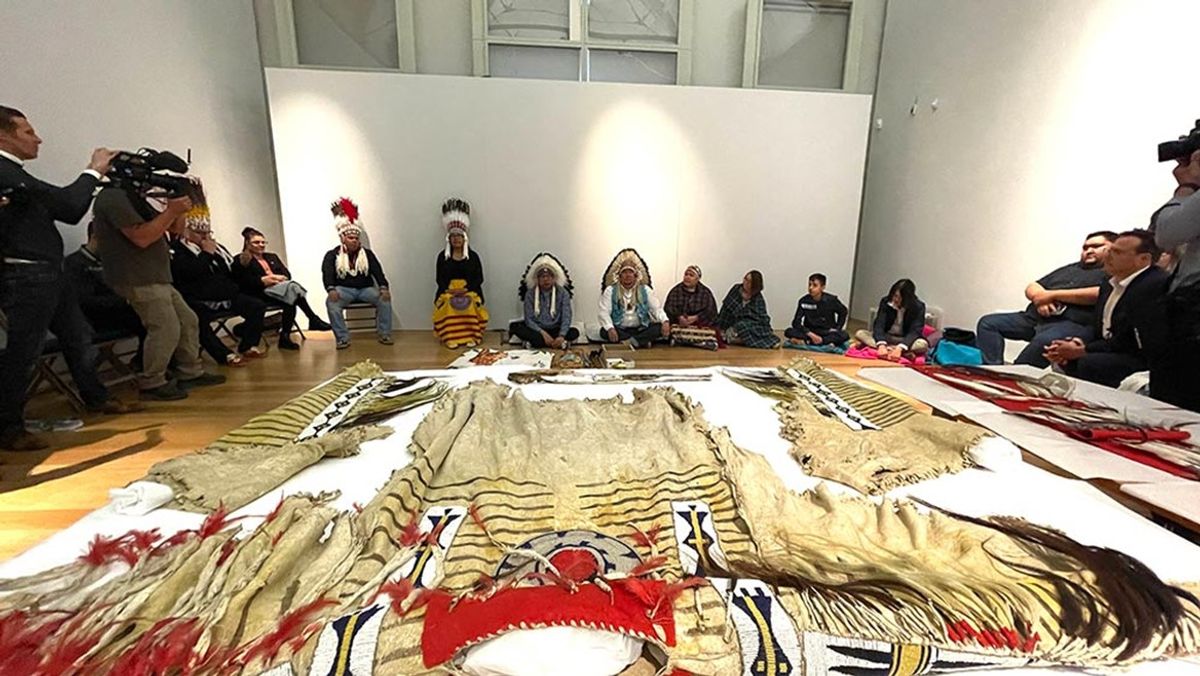On the same day that Prince Charles met with Canada’s National Chief of the Assembly of First Nations, Roseanne Archibald, and expressed empathy for the suffering of Indigenous peoples, a delegation from the Siksika First Nation in southern Alberta received a number of objects that have been housed in the Royal Albert Memorial Museum (RAMM) in Exeter since 1878.
Dignitaries from the Nation traveled to Exeter to receive sacred regalia that once belonged to the 19th century Blackfoot leader Chief Crowfoot. His descendant, Chief Ouray Crowfoot, said the event was an “historic day” that has been “a long time coming” in a video of the ceremony.
“Working with Camilla (Hampshire) and the city of Exeter, we’re very grateful to have these items come back home,” he said. “We don’t only see this as one event, but we see it as a relationship building and collaborative effort on ways we can open the door to bring many items back.”
Elders received objects ranging from a knife with a feather bundle, beaded bags, a horsewhip and buckskin shirts and leggings, and a deer hide necklace symbolising bravery.
“Bringing these items back home to Siksika is a historic event,” Crowfoot wrote in a statement. “Many items left Siksika and other Nations and were scattered across the globe. Now the tides are turning and these items are finding their way back home.”
The chief states that the Nation is “building strong relationships with curators at several museums as well as private collectors in an effort to bring items such as the ones coming home back to their rightful place. There are many more Blackfoot items still in need of being claimed and repatriated back to their rightful homeland.”
In a BBC interview, Crowfoot also noted that the objects were taken at a time when his people were dealing with a host of issues, including smallpox, starvation, and the introduction of the reservation system. “There is a power in these objects,” he said.
The repatriation of the objects was originally slated to happen in 2020, after the Exeter city council voted unanimously to return them, but travel restrictions related to the Covid-19 pandemic delayed the repatriation until last week (19 May).
In a statement, the city’s deputy leader Laura Wright said: “I feel very honoured to be here today to see the current Chief Crowfoot and his council, members of his family and the Blackfoot people here in Exeter to receive back into their ownership the artefacts that are here.”
The regalia will now be packed and returned to Canada, where it will be displayed in the Blackfoot Crossing Historical Park, a museum focussing on Siksika cultural heritage.


